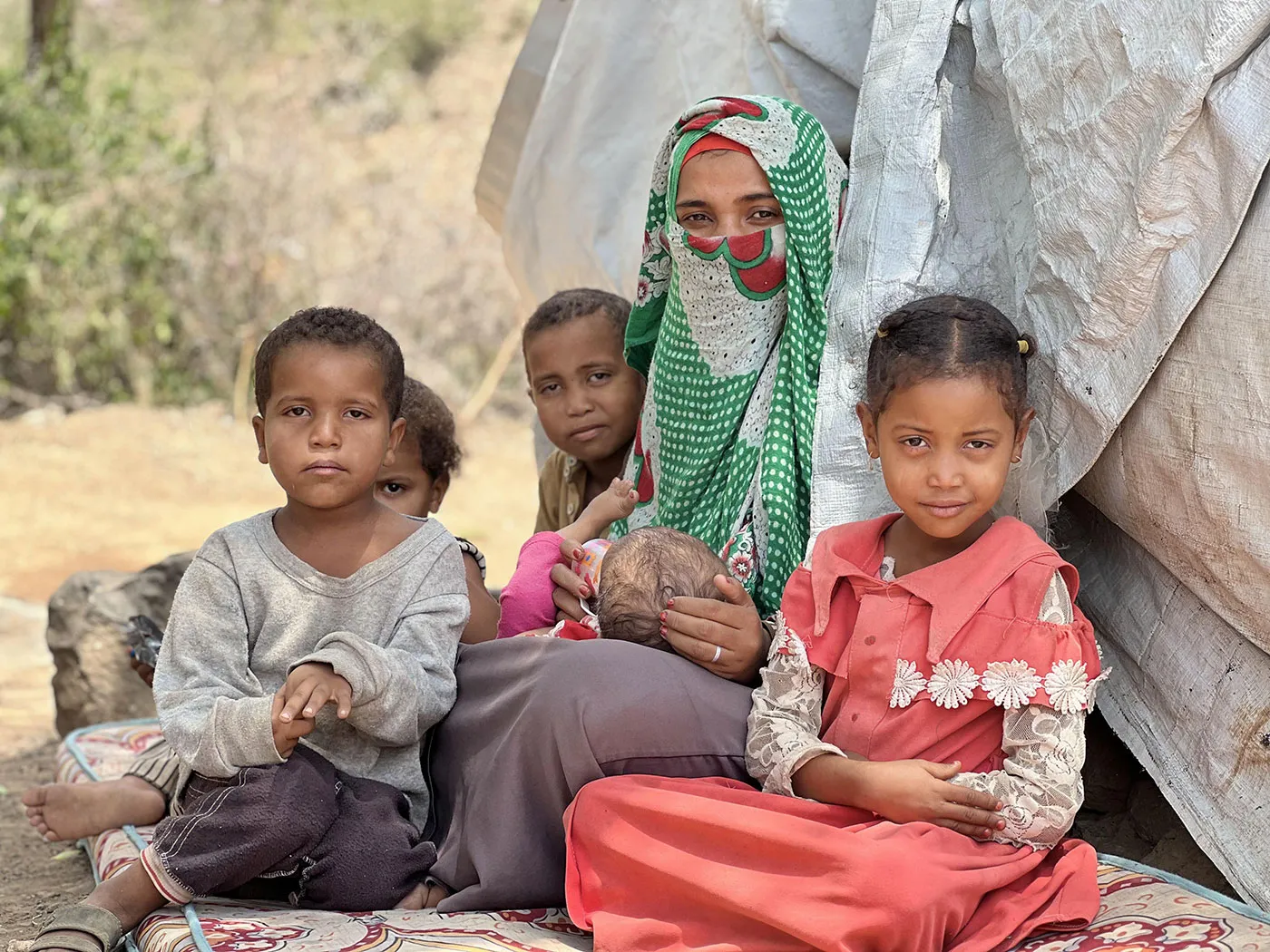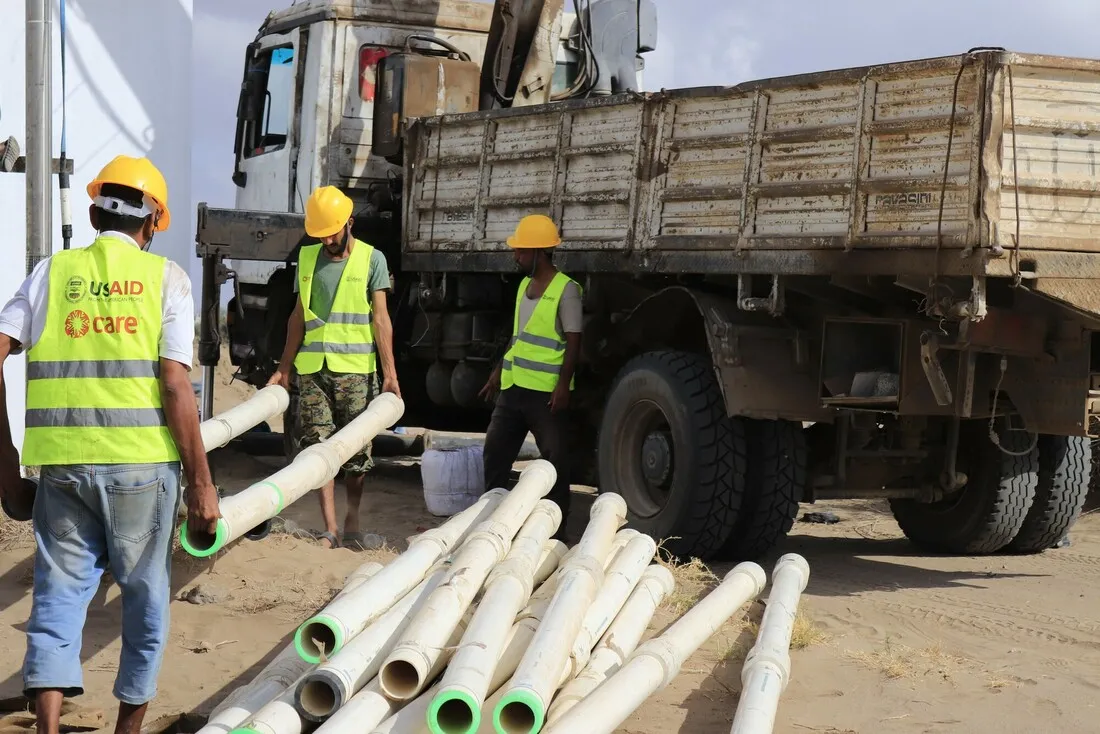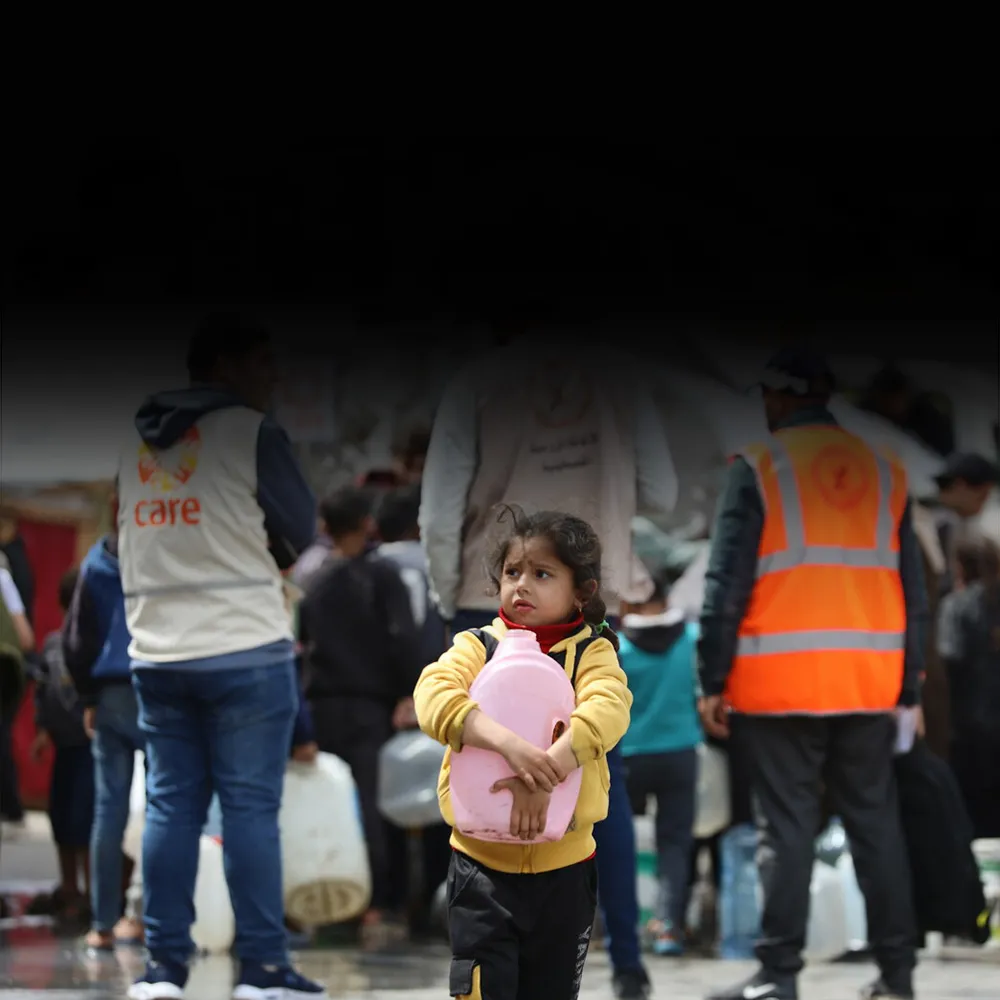About the Yemen crisis
Millions of Yemenis have been displaced due to conflict
A decade of conflict and economic decline in Yemen, compounded by years of underdevelopment and the collapse of institutions and infrastructure, has led to a deep humanitarian crisis that continues to cast a shadow on the well-being and protection of Yemeni people.
Yemen faces the world’s fourth-largest internal displacement crisis. An estimated 4.5 million people, or 14% of the population, are currently internally displaced, many of whom have been displaced multiple times over several years. Based on UN estimates, three quarters of the country’s internally displaced population are women and children.
Malnutrition threatens Yemenis, with women and children facing the highest risks
The country is experiencing a severe food security crisis, affecting an estimated 17.6 million people—over half of the population. Of these, six million are expected to face catastrophic levels of food insecurity.
Women and children in Yemen are at high risk of malnutrition, facing a dire crisis. Approximately 2.7 million pregnant and lactating women require urgent treatment for acute malnutrition. Additionally, nearly half of all children under five suffer from moderate to severe stunting, with around five million needing treatment for acute malnutrition.
The decade-long war in Yemen has disproportionately affected Yemeni women and girls. They face heightened risks of violence, exploitation, and abuse, while struggling to access essential healthcare, particularly maternal and child health services. Hunger and famine, direct consequences of the conflict, can only be eradicated by ending the war.



